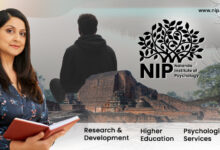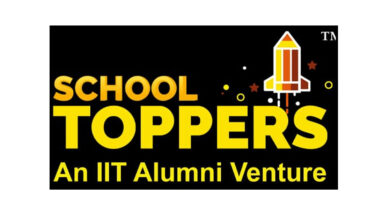Can Blockchain Bring Trust to an AI-Driven Education System?

As AI transforms education through personalized learning, automated grading, and predictive analytics, it raises profound concerns about bias, data security, and the loss of human oversight. AI can tailor educational content to individual needs, but at what cost? Who controls the algorithms? Can we trust AI-generated decisions in admissions, grading, and career recommendations?
Blockchain, with its decentralized, tamper-proof, and transparent nature, offers a way to counterbalance AI’s risks bringing trust, security, and student ownership into the learning ecosystem. While AI optimizes learning experiences, blockchain ensures fairness, accountability, and integrity in an increasingly AI-driven educational landscape.
Why Blockchain is Essential in AI-Powered Education
- Verifiable Learning Credentials in an AI Era
With the rise of online learning and AI-driven assessment platforms, academic credentials are often stored in centralized systems prone to hacking, manipulation, or fraud. Blockchain can provide a decentralized record of certifications, degrees, and achievements, ensuring lifelong verifiability and reducing credential forgery. Imagine a world where students don’t need to request transcripts employers and institutions can instantly verify credentials on a blockchain without intermediaries.
- Decentralized Student Data Ownership: Who Owns the Learning Data?
AI-based EdTech platforms generate vast amounts of student data, which is often stored and monetized by centralized companies. What happens if an institution shuts down or restricts access to records? Blockchain offers students full control over their educational data from course progress to skill certifications. Learners can grant or revoke access to institutions, employers, or recruiters without relying on third-party storage.
- Eliminating AI Bias in Academic Decisions
AI-powered grading and admissions tools often rely on historical data that may contain inherent biases favouring certain demographics, socioeconomic backgrounds, or regions. How do we ensure that AI-driven decisions remain fair? A blockchain-based audit trail can track and verify every AI-generated decision, making grading, admissions, and scholarship allocations transparent, accountable, and resistant to manipulation.
Example: A university using AI for scholarship selection could publish its decision-making criteria on a blockchain, allowing students to verify that selections were based on merit rather than biased data patterns.
- Smart Contracts for Adaptive Learning and Course Progression
AI adapts learning paths based on student performance, but who ensures that these paths are executed fairly? Smart contracts self-executing agreements stored on a blockchain can automate and verify:
- Course enrolment and completion based on real-time student progress.
- Micro-credentialing, where students earn blockchain-verified badges as they master new skills.
- Tuition payments and refunds, ensuring financial transactions are transparent and fraud-free.
- AI-Generated Content vs. Blockchain-Based Academic Integrity
With AI tools like ChatGPT creating essays, research papers, and even coding assignments, how do we differentiate authentic student work from AI-generated content?
- Blockchain can timestamp and verify academic submissions, ensuring that:
Assignments are original and submitted by the rightful student. - Research papers maintain authorship integrity, reducing the risk of AI-assisted plagiarism.
- Academic journals and universities have a decentralized peer-review system, ensuring credibility.
Example: A university could use blockchain to track and verify every stage of a thesis submission, preventing AI-generated content from distorting academic research.
- Skill-Based Hiring Over Traditional Degrees
AI is already changing hiring processes, with automated resume screening and skill-based assessments. However, many hiring tools rely on outdated or biased datasets, favouring candidates from certain universities or locations.
- Blockchain can power decentralized, skill-based hiring, where:
Students build verifiable digital portfolios of their coursework, certifications, and projects. - Employers access a tamper-proof record of real-world skills, eliminating reliance on inflated resumes.
- AI hiring tools operate with blockchain-backed transparency, ensuring fair candidate evaluation.
AI and Blockchain: A Partnership or a Power Struggle?
The intersection of AI and blockchain in education isn’t about competition, it’s about creating a balance between automation and trust.
- AI personalizes learning, but blockchain ensures fairness.
- AI predicts outcomes, but blockchain verifies results.
- AI automates hiring, but blockchain makes hiring trustworthy.
The Real Question: Who Should Control the Future of Learning?
Should AI dictate how students learn, or should blockchain empower students to take control of their education and careers? In an AI-driven world, blockchain may be the missing piece that ensures trust, integrity, and student autonomy in the future of education.
By Ms. Naga Sravanthi Puppala
Assistant Professor
CSE Department
SRM University – AP






